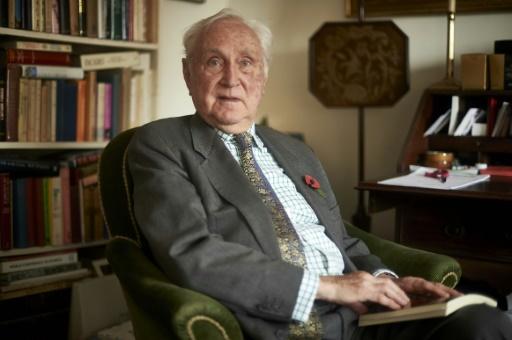
As a Foreign Office diplomat, Crispin Tickell helped Britain join the European Union in 1973. Now 86, he reflects on missed opportunities and his deep disappointment at the Brexit vote.
"I think it's a disaster. I think it's a failure of foreign policy," he told AFP in his book-filled, top-floor flat overlooking London's Regent's Canal.
"British foreign policy has been subjected to the vote of people who know nothing whatsoever about all this, and probably have a sneaking dislike of foreigners."
Tickell was in the British embassy in Paris when France blocked Britain's bid to join what was then the European Economic Community, and was private secretary to the three negotiators who subsequently struck the membership deal.
He disputes the claims by Brexit supporters that Britain had only intended to join a trading bloc when it signed up in 1973, not the more political union that the EU became.
"In the beginning it was obvious we were going in that direction, towards a united states of Europe. But that didn't mean we were going to give up sovereignty," he said.
During the campaign for the June referendum on EU membership, the "Leave" side used the slogan "Take Back Control" to harness public anger over decisions made in Brussels.
But Tickell said the feeling back then was that "we were able to participate in what would be the largest trade bloc in the world, that shared our common values and attitudes".
"We would be far more effective in an age when the Commonwealth was gradually declining in value and Britain was becoming less important," he said.
He added: "Joining the EU, as (then prime minister) Ted Heath understood very well, gave us a much stronger position.
"What we failed to do was to take advantage of it and realise what we could do."
- 'UK never took the EU seriously' -
The current French government has promised to be tough with Britain in the EU exit talks, and back then, it was Paris that twice vetoed London's application to join the bloc.
But Tickell, who spent six years at the Paris embassy and was chief of staff to European Commission president Roy Jenkins in the 1970s, says many in France were keen on British membership as a counterbalance to Germany.
Tickell was present at many of the negotiating meetings, and insists Britain got a good deal.
A major problem, he said, was that "some British leaders never took the subject very seriously".
"I don't think people realised the extent to which we could negotiate what we wanted in the European Union," Tickell said.
As an example, he said Britain should have tried harder to reform the bloc's generous farm subsidies.
"There were so many things we could have done from within without having to pull ourselves out," he said.
- 'Diminishing in strength' -
Tickell was in the Foreign Office for 36 years, and later became an unofficial advisor to prime ministers John Major and Tony Blair on environmental issues.
He knows Foreign Secretary Boris Johnson, whose father Stanley is an old friend and whose mother, Charlotte Johnson Wahl, painted a picture of Tickell and his wife that hangs in his flat.
His final posting was as Britain's ambassador to the United Nations -- an experience that gave him a clear view of how Britain could exert its international strength.
He said that after Brexit, Britain's role on the world stage would be a "lesser one, because we don't have the strength that the European Union gave us".
"As it is we're now diminishing in strength worldwide," he said.
"You just have to look at the way the Americans no longer take us as seriously as they did. And I think members of the Commonwealth feel the same thing."
While he despairs at the outcome of the referendum, however, he hopes it may not be definitive.
After all the negotiations, he suggests: "We may decide it's more to our advantage to be in than out."








































